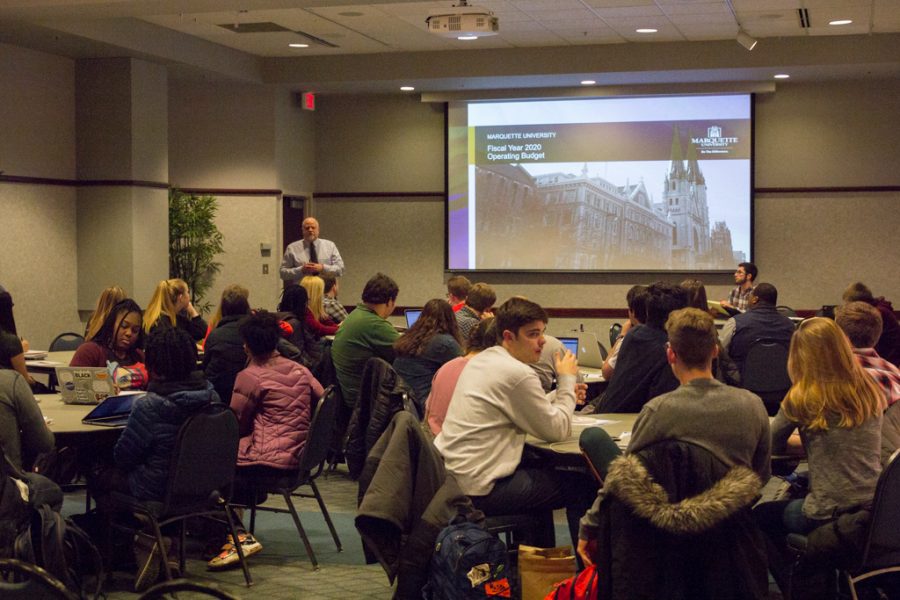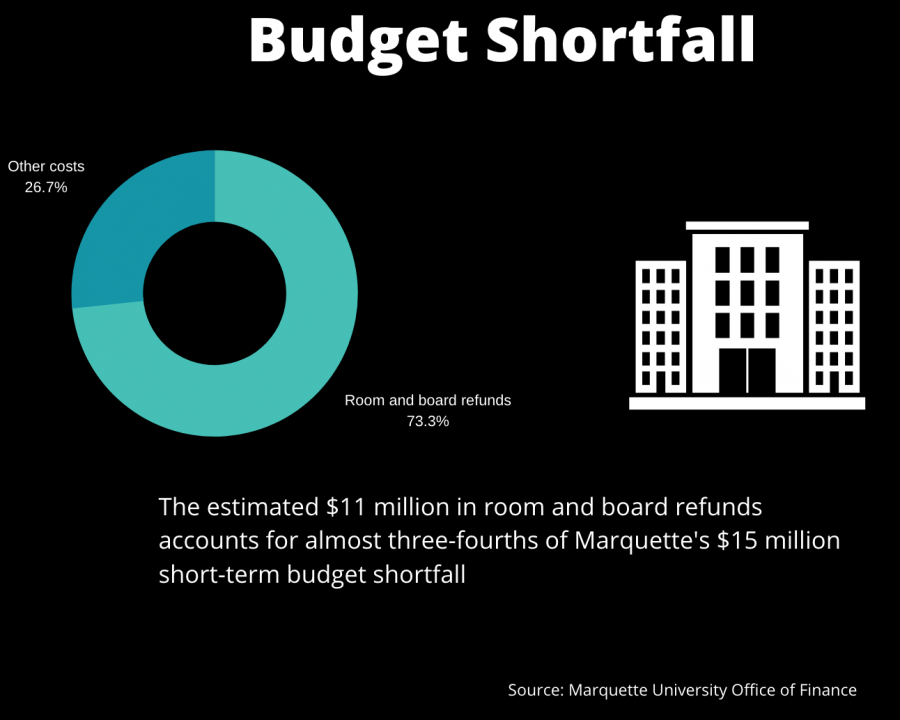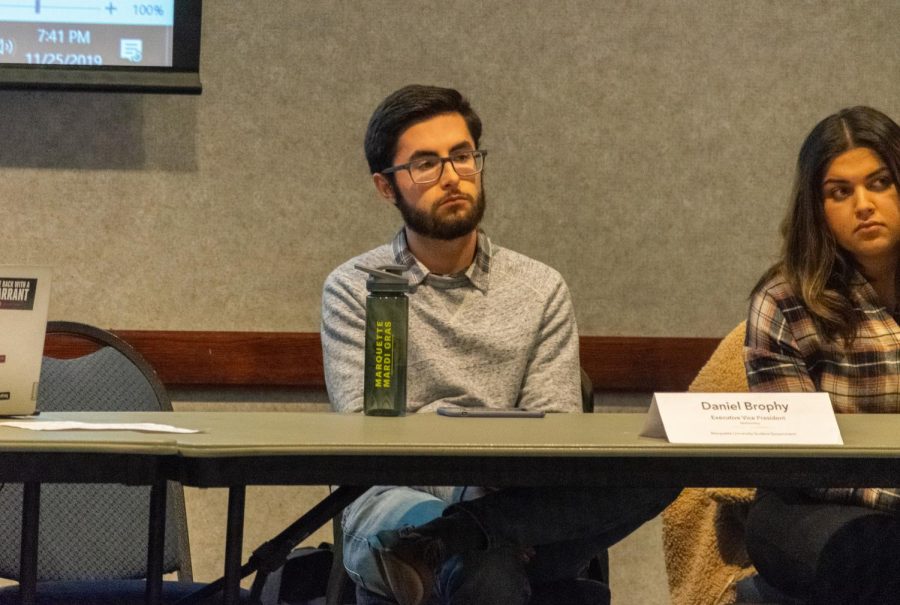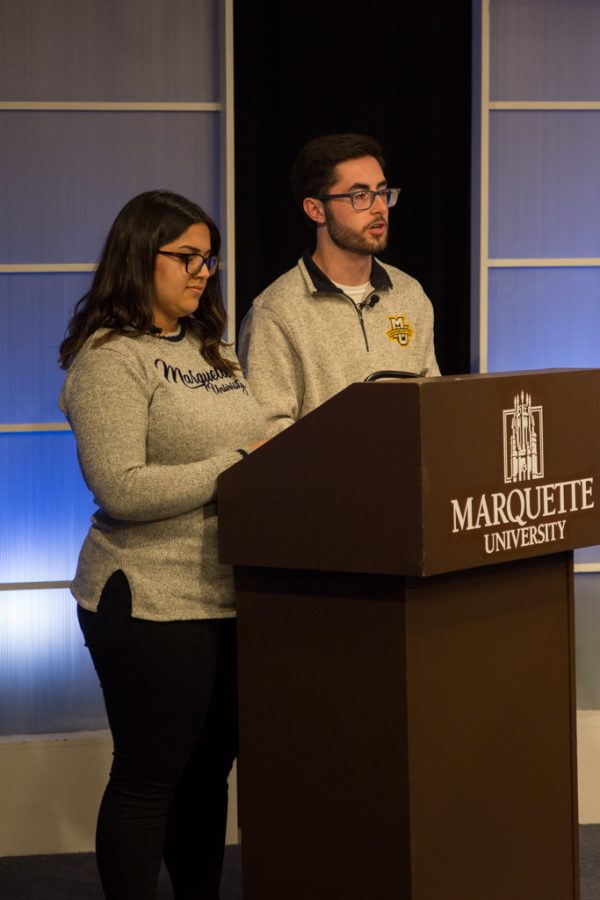Some of Marquette’s finance executives met with Marquette University Student Government last night at 8 p.m. to discuss the tuition increases. Students expressed concerns over the budget changes while executives explained the reasons for the increase.
Jay Kutka, senior budget director, and John M. Baworosky, vice president for enrollment management, explained where all the money that students pay for tuition goes.
“Over the last two years, we’ve had 5 percent tuition increase, let’s not try to hide it,” Kutka said.
The university announced a tuition increase of $1,960 for the 2018-’19 academic year, raising the tuition by nearly 5 percent, according to a news brief released Nov. 20.
Approximately 47 percent goes to faculty and staff compensation and 26 percent goes toward student scholarships. Student support, meaning technology advancements, public safety and other support receives 16 percent. Ten percent is used to build and maintain campus buildings. The one percent left over goes to administrative expenses, like insurance and interest expenses.
The budget also gives the university the chance to make investments it deems important for improving the overall experience of Marquette students, Kutka said. He pointed out some of the key investments Marquette has made in the past couple of years in the presentation.
The developments from the investments include The Commons, classroom upgrades and the Les Aspin Center.
Albert Reyes, a sophomore in the College of Arts & Sciences, said his concern was with the immediacy of the tuition change, rather than raising tuition for future students as they come in.
“When the tuition increases, why is it not grandfathered in? Why doesn’t our tuition stay at what we started (with)?” Reyes said.
John M. Baworowsky, vice president for enrollment management, said there was a talk about taking tuition and setting it at one price for all four years.
“But if we were to implement that, it would be an elevated price (from what it is now),” Baworowsky said.
Kutka also explained that keeping tuition the same for students throughout their four years presents an issue with inflation on a competitively priced college education.
“We cannot raise (tuition) fast enough to outpace inflation every year,” Baworowsky said.
The problem is the price of producing quality education continues to rise every year, Baworowsky said.
Barowsky added that it’s likely for potential tuition increases to continue as inflation and prices rise.
“I think there’s always going to be a tuition increase, but I would think that as we build the budget and make decisions, having (the students) here is a good thing,” Kutka said. “And maybe I can carry the torch to those who I report to and express the students’ concerns,” Kutka said.
Dan Brophy, legislative vice president of MUSG, said he hoped the meeting allowed students to understand that Marquette officials care a lot about students and the university.
“I hope this bridges the communication gap (between the university and students), and helps (students) understand where they’re coming from,” Brophy said.






